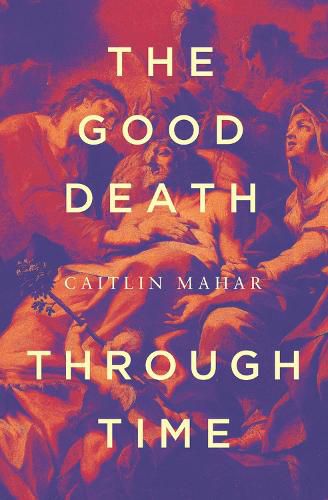Readings Newsletter
Become a Readings Member to make your shopping experience even easier.
Sign in or sign up for free!
You’re not far away from qualifying for FREE standard shipping within Australia
You’ve qualified for FREE standard shipping within Australia
The cart is loading…






Can our forebears help us face complex questions of dying, now?
'I have quite a bit of understanding of white man's ways, but it is difficult for me to understand this one.'
An Australian Senate committee investigation of the Northern Territory's Rights of the Terminally Ill Act 1995, the first legislation in the world that allowed doctors to actively assist patients to die, found that for the vast majority of Indigenous Territorians, the idea that a physician - or anyone else - should help end a dying, suffering person's life was so foreign that in some instances it proved almost impossible to translate. The Good Death Through Time asks how such a death became a 'thinkable'-even desirable-way to die for so many others in Western cultures.
For centuries a good death - the 'euthanasia' - meant a death blessed by God that might well involve pain, for suffering was seen as ultimately redemptive. But in the Victorian age, when doctors started to treat the dying with painkillers as well as prayers, a painful death came to be thought of as an aberrant, dehumanising experience. As this book explores, the modern idea that a good death should be painless spurred sometimes troubling developments in palliative medicine as well as an increasingly well-organised assisted dying movement.
Delving into what euthanasia activists, doctors, lawyers, religious leaders and lay people have thought and felt about dying, The Good Death Through Time shows that understanding the radical historical shift in Western attitudes to managing dying and suffering helps us better grasp the stakes in today's contestations over what it means to die well.
$9.00 standard shipping within Australia
FREE standard shipping within Australia for orders over $100.00
Express & International shipping calculated at checkout
Can our forebears help us face complex questions of dying, now?
'I have quite a bit of understanding of white man's ways, but it is difficult for me to understand this one.'
An Australian Senate committee investigation of the Northern Territory's Rights of the Terminally Ill Act 1995, the first legislation in the world that allowed doctors to actively assist patients to die, found that for the vast majority of Indigenous Territorians, the idea that a physician - or anyone else - should help end a dying, suffering person's life was so foreign that in some instances it proved almost impossible to translate. The Good Death Through Time asks how such a death became a 'thinkable'-even desirable-way to die for so many others in Western cultures.
For centuries a good death - the 'euthanasia' - meant a death blessed by God that might well involve pain, for suffering was seen as ultimately redemptive. But in the Victorian age, when doctors started to treat the dying with painkillers as well as prayers, a painful death came to be thought of as an aberrant, dehumanising experience. As this book explores, the modern idea that a good death should be painless spurred sometimes troubling developments in palliative medicine as well as an increasingly well-organised assisted dying movement.
Delving into what euthanasia activists, doctors, lawyers, religious leaders and lay people have thought and felt about dying, The Good Death Through Time shows that understanding the radical historical shift in Western attitudes to managing dying and suffering helps us better grasp the stakes in today's contestations over what it means to die well.